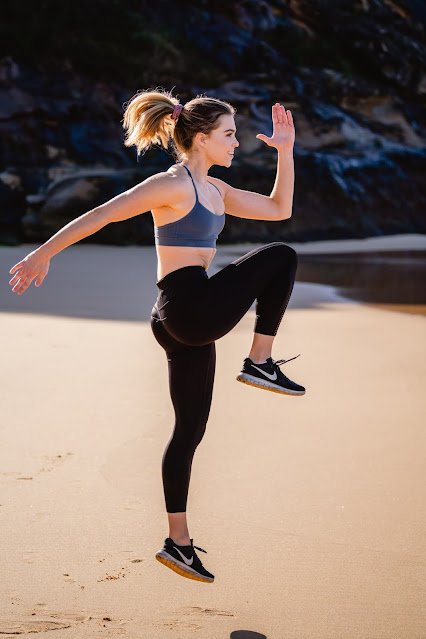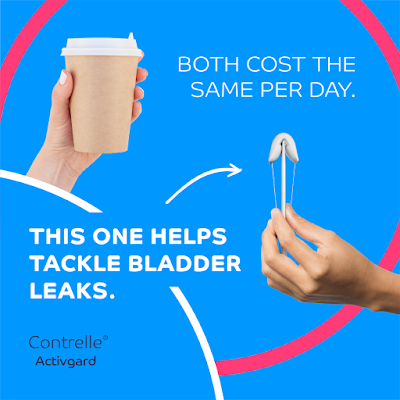We use cookies to make your experience better. To comply with the new e-Privacy directive, we need to ask for your consent to set the cookies. Learn more.
Stress Urinary Incontinence - Breaking the Taboo
Stress Urinary Incontinence - Breaking the Taboo
Stress Urinary Incontinence - Breaking the Taboo
Guest Blog by Mummy From the Heart
Some people will have read that blog title and clicked straight away, who wants to read about someone with a leaky bladder? Right? However, I suspect many people, especially mothers will be interested to read on, as this is an issue that is impacting so many women worldwide, even relatively young women. Patient.info states that around 3 million women in the UK are regularly incontinent. Overall it is around 4 in every 10 women, and over half of those are suffering from stress urinary incontinence.
What is Stress Urinary Incontinence?
Stress urinary incontinence is described as involuntary urine leakage on exertion such as coughing/laughing/sneezing or exercise. It is caused by damage to or weakening of the pelvic floor muscle, which leads to an incompetent urethral sphincter and it is largely caused by childbirth thus young women can develop this problem. I was really interested to learn that constipation, menopause, and hormonal changes can all have an impact on the effectiveness of your pelvic floor muscles too.
This isn't your regular topic of conversation at toddler group or in the works canteen though, no it is the kind of thing that women are brushing under the carpet and keeping quiet about. No one wants to be the woman who leaks urine when she laughs, coughs, or sneezes. But let me put my hand up and say, I'm Michelle and I suffer from this, and when better to share this post than during World Continence Week.
I absolutely adore my three children but they have a lot to answer for in terms of the havoc they reeked on my body. Being overweight already and then carrying twins my pelvic floor muscles were put to the test and failed. Ever since the birth of my twins (14 years ago) I've had some leakage and now it seems to be getting worse, but the good news is, I bit the bullet and asked for help.
Seeking Help
I'm hopeful that most women don't leave it as long as I did to seek help, but I had an excuse, until January this year I had been suffering from menorrhagia and almost constant bleeding for around a decade. This took centre stage and I was wearing a pad every day, so what consequence was a little bit of urine leakage anyway. Since my miracle when my bleeding stopped I've been keen to tackle this other issue. At the risk of TMI, I no longer want to be the woman who has to wear a pad or risk a day in damp knickers - yes this is my sad reality.
My GP was keen to listen to my issue and she arranged for me to have an examination to see if there was anything obvious causing my leakage. Thankfully there was no prolapse and she advised me that my excess weight wouldn't be helping the issue, so I should try to lose some weight and she would refer me to the specialist pelvic health physiotherapy service.
From first talking to my GP on 4th March, I had a referral within a couple of weeks and was sent some information and I have an initial telephone consultation with the specialist pelvic health physiotherapist in July. I think this has progressed quite quickly and I feel optimistic for the future.
It's great news that just a week ago the NHS announced they were launching a new pelvic health service in 14 different areas of the country, so women can self-refer and have easy access to pelvic health specialists, especially during pregnancy and post-birth. Then following the trials this service will be available across the whole of the country by March 2024. I pray that this means more women will access the service and not suffer in silence.

Photo by Thomas Yohei on Unsplash
Easy Tips to Help Yourself
Once you've seen your GP or a specialist and had it confirmed that it is your pelvic floor muscles at fault and nothing more serious, there are some really easy things you can do to help your situation.
1. Exercise your pelvic floor muscles
I have to admit that I thought the 'pelvic floor muscle' was just one small muscle in the vagina, I now know it is a group of muscles at the base of your core, that sits in your pelvis and forms the base (or floor) of that muscle group. They are like a sling stretching from the pelvic bone at the front to the coccyx at the back and when effective they hold everything in place and allow you to clamp down with your sphincters to stop your urine mid-flow or hold it in.
The trouble comes when they are weakened or damaged and that is why it is so important to exercise them every day. It is super simple and can be done anywhere. My tip is to set reminders on your phone, (or download something like the Squeezy app) otherwise, it is too easy to forget to do them. There is good instruction on the NHS site and also some instructional videos too.
The brilliant news is that it is never too late to start exercising your pelvic floor and for most people, it will strengthen with a persistent effort, and you will find your leakage lessen, or even stop after a few months.
2. Wear a Contrelle Activgard
Whilst you are exercising and strengthening your pelvic floor muscles, you may wish to take some extra protection to ensure you stay dry and fresh, especially if you engage in high-impact exercise. An innovative piece of FemTech, Contrelle has been re-released to the UK. The device can be used alongside pelvic floor exercises to manage the cause of Stress Urinary Incontinence (SUI) amongst women of all ages. Instead of treating the symptoms with uncomfortable, bulky pads or liners, this nifty product works by lifting the bladder neck and urethra, via a soft, foam bladder support inserted into the vagina. It can be worn for up to 16 hours.
I admit I haven't tried Contrelle yet but I have got some coming and I'll be interested to see how they work. Initially, you get a sizing kit to ensure that you get the right fit for you, and then you can buy a 5-pack for £18.75 or a 30-pack for £90. So they're not a cheap solution, but you should only need them short-term and if a particular sport is your work or love, then I imagine it will be worth it for the peace of mind. And let's be honest, they are only the price of a takeaway coffee. I think any of us with this issue would swap a coffee for a leak-free day!

3. Talk to a Friend
Don't shoulder this problem alone, talk to someone you trust. Maybe a friend, your mum or even your husband. It's always good to have someone else know how this is impacting you and they can support and pray for you. If we all talk about our issues we normalise them and take away the shame, and that's really important.
I hope you've found this article helpful, whether you have stress urinary incontinence or not, you are bound to know someone who is suffering and you being open and honest about the problem may just help them to ask for the help they need. Let's remove the stigma friend and break some taboos. Women's health issues need to be discussed more freely, so we can all live more freely.








